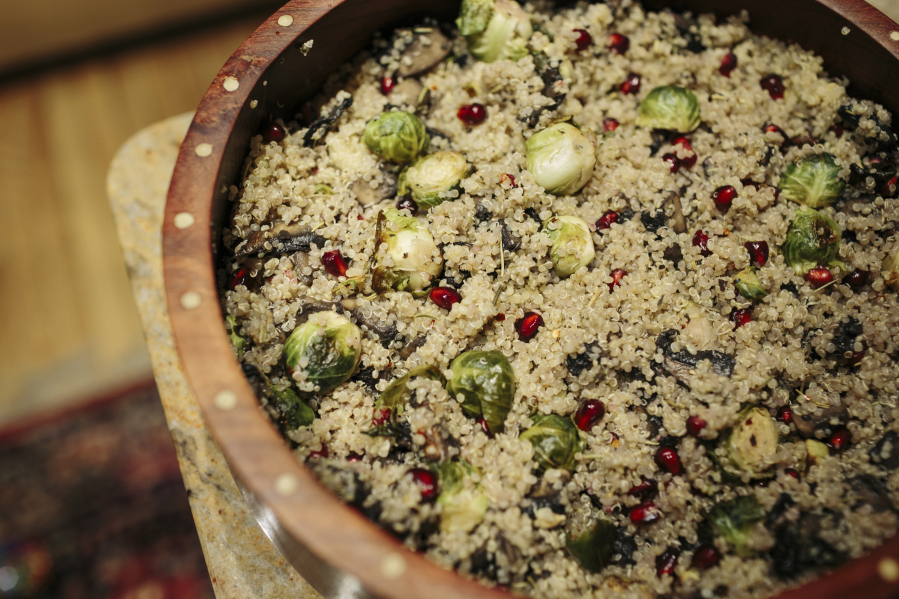One of my son’s eighth-grade friends recently became a vegetarian. He joins the approximately 4 percent of youths in this country (up from 2 percent 10 years ago) who eat meatless. As much as my boys respect his choice and recognize his passion for the environment that spurred the decision, neither of them truly understands it.
Although my sons eat plenty of vegetables, their most requested dinners include sausage, pork or ground beef. In fact, their favorite meal is grilled pork tenderloin with bacon corn relish. We call it “pig on pig.” We eat it with loads of green vegetables and rotate fish, chicken and quinoa on other nights. But I won’t lie: I make it a lot.
The boys asked how their friend could put on enough muscle, possess enough energy or be such a good athlete without meat. I told them that meat can be very good for growing boys and athletes, as its protein helps to build muscle, repair tissue, provide energy and balance mood — but it is by no means necessary. If he’s eating enough vegetarian sources of protein, iron and B vitamins, their friend will perform just as well. In fact, the Academy of Nutrition and Dietetics’ position on vegetarian diets is that “well-planned vegetarian diets are appropriate for individuals during all stages of the life cycle, including pregnancy, lactation, infancy, childhood and adolescence, and for athletes.”
There are many athletes who have risen to the top ranks of their sports while being meat-free, including tennis legend Martina Navratilova, football hero Joe Namath, 1998 Heisman Trophy winner Ricky Williams, Olympic track star Carl Lewis, baseball slugger Prince Fielder and tennis icon Venus Williams. In 2011, Venus Williams was diagnosed with an autoimmune disease that caused her to step off the court for a period. She attributes her strong return to tennis to her mostly vegan diet and better lifestyle choices, such as rest days. Ricky Williams told Men’s Journal that going meat-free “changed my game, and it changed my body. I had tons of energy.”



